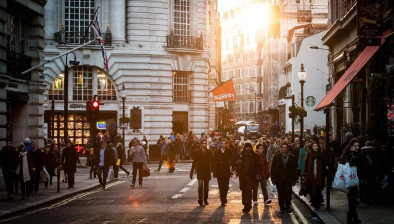Bank of England: Inflation set to rise above 3%

The Bank of England (BoE) has forecast that annual inflation would likely surpass 3% for a “temporary period”.
Yesterday, the bank announced the revised forecast at its monthly Monetary Policy Committee meeting where it also decided to hold the UK base rate at 0.1%.
Official figures published last week revealed that annual UK consumer prices index inflation soared unexpectedly above the BoE’s 2% tagret in May.
Data from the Office for National Statistics showed annual UK CPI inflation climbed from 1.5% in
April to a 22-month high of 2.1% in May, with the increase fuelled by higher petrol and clothing prices. The 2.1% rate was above all 33 forecasts in a poll of economists by Reuters which had signalled an expectation of a rise to 1.8%.
The bank said yesterday: “Twelvemonth CPI inflation rose from 1.5% in April to 2.1% in May, above the MPC’S 2% target and 0.3 percentage points higher than expected in the May (monetary policy) report. Core CPI inflation has also risen from 1.3% to 2.0%.
“Building global input cost pressures have increasingly been passed through into manufacturing output prices and non-oil import prices.
“CPI inflation is expected to pick up further above the target, owing primarily to developments in energy and other commodity prices, and is likely to exceed 3% for a temporary period.”
The BoE said that the MPC will continue to monitor the situation closesly and take whatever action is necessary to achieve its remit.
The bank added: “The committee does not intend to tighten monetary policy at least until there is clear evidence that significant progress is being made in eliminating spare capacity and achieving the 2% inflation target sustainably.”
Martin Beck, senior economic advisor to the economic forecaster the EY ITEM Club, commented: “The outcome of June’s Monetary Policy Committee (MPC) meeting repeated that of the previous month. The committee voted unanimously to keep Bank Rate at 0.1% and 8-1 to maintain the target stock of asset purchases at £895bn. Andrew Haldane, who leaves the MPC this month, repeated his vote in May to cut asset purchases this year from £150bn to £100bn.
“The policy statement was stronger in several respects. The MPC thinks the economy will grow 5.5% in Q2, up from 4.25% expected in May. CPI inflation is predicted to exceed 3%, compared to a peak of 2.5% previously forecast. And there was a risk inflation could pick up even more.
“But with higher prices expected to be primarily driven by energy and commodity, the committee stuck to the view that above-target inflation should be temporary. And it reiterated its focus on medium-term prospects for inflation, rather than “transient” price pressures. So the risk of the MPC being rushed into a major change of tone, or a move in policy, anytime soon looks low.
“That said, there was a difference of view among the MPC in judging whether inflationary pressures were temporary or persistent. One view attached weight to short-term data, while another favoured a longer-term perspective, including waiting until the furlough scheme had unwound.
“The EY ITEM Club shares the MPC’s view that inflation should settle back to around 2% in the medium term. And forces influencing consumer prices in the short term are not all one way. The stronger pound will weigh on import prices. And that the supply-side of the economy may exit the pandemic relatively unscathed implies that spare capacity is likely to persist for some time. So the EY ITEM Club continues to expect that the MPC will not start raising Bank Rate until late 2022 or early 2023.”
Kevin Brown, savings specialist at Scottish Friendly, added: “Inflation has become the elephant in the room for the Bank of England’s monetary policy committee as it shows no signs of directly addressing the sharp rebound in prices.
“The Bank is sticking to its guns that inflation will soon fall back below its 2.0% target once the economic imbalances between demand and supply are ironed out.
“But this could be a dangerous game to play as it has so far misjudged it’s inflation forecasts during the recovery and if it continues to underestimate price growth it could find itself firmly on the back foot.”
He continued: “In the meantime, households are trying to make their own judgements about how to balance spending and saving as the economy fully opens up.
“For savers, the trick is to move quickly. Savings rates have stabilised but remain low and if inflation ticks upwards then your cash is going to steadily lose value. To limit the damage, people should shop around to find the best deal they can. Even if you can’t beat inflation it’s worth trying to minimise your losses.
“Also, it’s worth remembering that if you don’t need ready access to your cash and want to save for the long-term, then stocks and shares can offer greater growth potential.”






